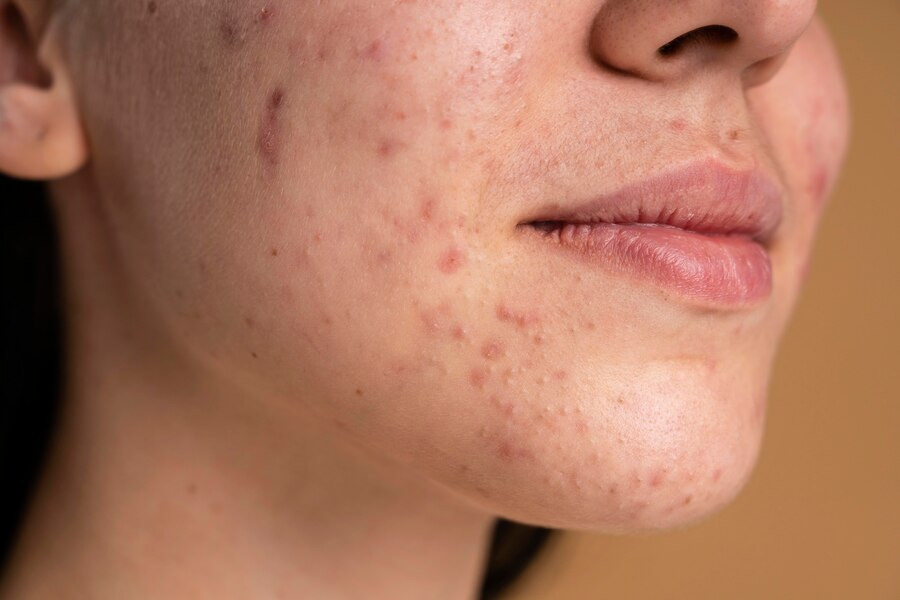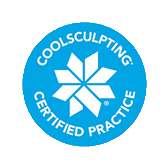Common Dermatological Conditions and Treatments

Common Dermatological Conditions and Treatments
Skin, the largest organ of the human body, often reflects our inner health and well-being. From irritating rashes to persistent acne, dermatological conditions affect millions worldwide. Understanding these common afflictions and their treatments is pivotal for maintaining healthy, radiant skin. In this comprehensive guide, we delve into prevalent dermatological issues plaguing individuals of all ages and backgrounds. By shedding light on effective remedies and preventive measures, we aim to empower you with the knowledge to confidently tackle skin concerns and embrace a glowing complexion.
The Complexity of Dermatological Conditions
Dermatological conditions encompass a wide spectrum of ailments, ranging from minor irritations to severe chronic disorders. Understanding these complexities involves considering various factors such as genetics, lifestyle, environment, and underlying health conditions.
Each condition presents unique challenges, requiring tailored approaches for diagnosis and treatment. By delving into the intricacies of these conditions, we can better appreciate the nuanced nature of dermatology and the importance of individualized care in achieving optimal skin health.
The Vital Significance of Skin Health
Skin health isn’t just about aesthetics; it’s a reflection of our overall well-being. As the body’s first line of defense, the skin plays a crucial role in protecting against pathogens, regulating temperature, and maintaining hydration. Furthermore, it serves as a barometer of internal health, often manifesting symptoms of underlying conditions.
Prioritizing skin health involves adopting habits that promote its integrity, such as proper skincare, balanced nutrition, hydration, and sun protection. Recognizing the vital significance of skin health underscores its importance in our daily lives and encourages proactive measures to safeguard this essential organ.
Common Afflictions: A Comprehensive Overview
Dermatological issues affect individuals of all ages, genders, and backgrounds, presenting a myriad of challenges that impact daily life. From bothersome acne breakouts to debilitating eczema flare-ups, these conditions can cause physical discomfort, emotional distress, and social stigma.
By providing a comprehensive overview of common skin afflictions, we aim to shed light on their prevalence, symptoms, triggers, and available treatments. Armed with this knowledge, individuals can better recognize and manage their skin concerns, leading to improved quality of life and enhanced confidence in their health and appearance.
Understanding the Root Causes of Dermatological Issues
Understanding the root causes of dermatological issues is crucial for effective treatment and prevention. Here are five common factors contributing to skin problems:
- Genetics: Inherited predispositions play a significant role in dermatological issues, influencing susceptibility to conditions such as eczema, psoriasis, and acne, shaping individual responses to treatments and disease progression.
- Environmental factors: Exposure to pollutants, ultraviolet radiation, harsh weather conditions, and allergens can trigger or exacerbate skin problems, contributing to inflammation, irritation, and accelerated aging of the skin.
- Hormonal imbalances: Fluctuations in hormone levels, such as during puberty, pregnancy, or menopause, can disrupt sebum production, leading to acne breakouts, oily skin, and other hormonal-related dermatological concerns.
- Lifestyle choices: Factors like diet, stress levels, sleep patterns, and skincare routines profoundly impact skin health. Unhealthy habits such as smoking, poor nutrition, and excessive sun exposure can exacerbate skin conditions.
- Immune system dysfunction: Dysregulated immune responses can manifest as autoimmune skin disorders like psoriasis, eczema, and vitiligo, where the immune system mistakenly targets healthy skin cells, resulting in inflammation, itching, and skin discoloration.
The Impact of Dermatological Conditions on Daily Life
Dermatological conditions exert a profound influence on daily life, extending beyond physical discomfort to affect emotional well-being and social interactions. Individuals grappling with persistent skin issues may experience heightened self-consciousness, anxiety, and depression, impacting their confidence and quality of life.
Furthermore, managing symptoms such as itching, pain, or visible lesions can disrupt sleep, work, and recreational activities, leading to frustration and decreased productivity. Understanding the far-reaching consequences of dermatological conditions underscores the importance of prompt diagnosis, effective treatment, and ongoing support to mitigate their impact and empower individuals to live fulfilling lives unhindered by skin concerns.
Effective Treatments for Persistent Skin Problems
Persistent skin problems demand comprehensive treatment approaches tailored to address underlying causes and alleviate symptoms effectively. From topical medications and oral therapies to advanced procedures and lifestyle modifications, a myriad of treatment options exists to combat conditions such as acne, eczema, psoriasis, and rosacea.
Dermatologists leverage their expertise to customize treatment plans based on individual needs, considering factors such as severity, skin type, medical history, and treatment preferences. By exploring the efficacy of various treatment modalities, individuals can make informed decisions and collaborate with healthcare providers to achieve long-term relief and improved skin health.
Addressing Acne: Strategies for Clearer Skin
Acne, a prevalent dermatological concern, can significantly impact self-esteem and quality of life, especially when left unmanaged. Effective acne management entails a multifaceted approach that targets factors contributing to its development, including excess sebum production, bacterial proliferation, inflammation, and hormonal fluctuations.
Strategies for clearer skin encompass a combination of topical treatments, oral medications, lifestyle modifications, and skincare practices tailored to individual needs. By adopting a proactive stance and implementing evidence-based interventions, individuals can effectively manage acne, reduce breakouts, and achieve smoother, clearer skin, restoring confidence and enhancing overall well-being.
Managing Eczema: Relief for Itchy, Inflamed Skin
Eczema, characterized by itchy, inflamed skin, poses significant challenges for those affected, often disrupting daily routines and diminishing quality of life. Managing eczema involves a comprehensive approach aimed at alleviating symptoms, repairing the skin barrier, and preventing flare-ups. This may entail the use of emollients, topical corticosteroids, calcineurin inhibitors, and antihistamines to soothe inflammation and itching.
Additionally, identifying and avoiding triggers such as certain fabrics, harsh detergents, and environmental allergens can help minimize symptom exacerbation. By adopting a proactive approach to eczema management, individuals can experience relief from discomfort and achieve improved skin health and overall well-being.
Confronting Psoriasis: Coping with Chronic Skin Inflammation
Psoriasis, a chronic autoimmune condition, presents unique challenges for individuals coping with its relentless cycle of skin inflammation and flares. Confronting psoriasis involves a holistic approach encompassing medical treatments, lifestyle modifications, and emotional support. From topical therapies and phototherapy to systemic medications and biologic agents, various treatment options aim to alleviate symptoms and reduce disease activity.
Coping strategies include stress management techniques, adherence to treatment regimens, and seeking support from healthcare professionals and support groups. By embracing a proactive stance and adopting coping mechanisms, individuals can navigate the complexities of psoriasis and improve their quality of life.
Tackling Dermatitis: Solutions for Irritated Skin
Dermatitis, characterized by inflammation of the skin, manifests in various forms, including allergic, irritant, and atopic dermatitis. Tackling dermatitis requires a multifaceted approach aimed at identifying triggers, soothing inflammation, and restoring skin barrier function. Solutions encompass the use of emollients, topical corticosteroids, and calcineurin inhibitors to alleviate symptoms and prevent flare-ups.
Additionally, lifestyle modifications such as avoiding irritants, managing stress, and practicing proper skincare play pivotal roles in managing dermatitis effectively. By implementing tailored solutions and addressing underlying factors, individuals can find relief from irritated skin and improve their dermatological health and overall well-being.
Banishing Rosacea: Soothing Redness and Flare-Ups
Rosacea, a chronic inflammatory skin condition, presents challenges for individuals grappling with facial redness, flushing, and flare-ups. Banishing rosacea involves a comprehensive approach focused on identifying triggers, minimizing symptoms, and preventing disease progression. Strategies include the use of topical medications, oral antibiotics, and laser therapy to reduce redness and control inflammation.
Lifestyle modifications such as avoiding triggers like spicy foods, alcohol, and extreme temperatures can help manage symptoms and prevent exacerbations. By incorporating soothing skincare routines and seeking professional guidance, individuals can effectively manage rosacea, restoring confidence and comfort in their skin.
Dermatological Concerns Across Different Age Groups
Dermatological concerns vary across different age groups, with specific challenges and considerations at each life stage. From infancy to old age, individuals encounter unique skin issues influenced by factors such as hormonal changes, environmental exposures, and lifestyle habits.
Common concerns include diaper rash in infants, acne in adolescents, and age-related changes such as wrinkles and skin cancer risk in older adults. Understanding these age-specific dermatological concerns is essential for implementing preventive measures, seeking timely interventions, and promoting skin health throughout the lifespan.
Promoting Skin Wellness: Prevention and Maintenance Strategies
Promoting skin wellness involves adopting proactive measures to prevent dermatological issues and maintain skin health. Prevention strategies encompass sun protection, proper skincare routines, and healthy lifestyle habits such as balanced nutrition and adequate hydration. Additionally, regular skin examinations, early detection of skin changes, and adherence to recommended screenings contribute to maintaining skin wellness.
Maintenance strategies include the use of moisturizers, serums, and targeted treatments to address specific skin concerns and preserve skin integrity. By prioritizing prevention and implementing maintenance strategies, individuals can promote skin wellness and enjoy a lifetime of healthy, radiant skin.
Common dermatological conditions and treatments are paramount for maintaining healthy skin and overall well-being. At American Laser Med Spa in Corpus Christi, TX, we’re committed to providing personalized skincare solutions tailored to your unique needs. Whether you’re dealing with acne, eczema, psoriasis, or other skin concerns, our experienced professionals are here to help.
Don’t let skin issues hold you back any longer. Take the first step towards healthier, radiant skin by scheduling a consultation today at (361) 993-5400. Empower yourself with the knowledge and resources needed to achieve the clear, glowing complexion you deserve.







